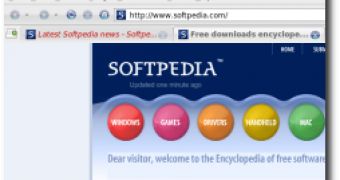The Internet is no longer a safe place and this is proved day by day by numerous hacker attacks, malware reports or virus infections discovered on the computers from every corner of the world. No matter if the threat is represented by spam, viruses, Trojans or even the exploitations of the vulnerabilities identified in our programs, we must do something about it and assure a safe browsing experience on our computer.
Usually, people sustain it is very important to own a powerful browser, other than Microsoft's Internet Explorer, to remain secure as long as you're visiting sites. My opinion is that the browser doesn't matter (of course, as long as it doesn't contain vulnerabilities or other security issues) as long as it is properly configured and used as the developer recommends. Let's take the example of Internet Explorer, the browser developed by the software giant Microsoft, a browser that is often regarded as the weakest application if we talk about security. A recently released study report sustained that Microsoft repaired all the vulnerabilities reported into its browser while Mozilla, the owner of Firefox, patched only a small percentage of the security flaw. The conclusion? Internet Explorer is safer.
In this period, both Internet giants, Google and Yahoo, provide a customized browser, Firefox, equipped with their utilities such as toolbars or other add-ons. Usually, the toolbars include pop-up blockers and shortcuts to the companies' products, making Mozilla's product even more secure. The conclusion? Firefox is safer.
So, how can we improve the security of our browsers? Some of the most used tools are surely the toolbars provided by Google and Yahoo that contain pop-up blockers, malware notification or other tiny security tools. These utilities are very useful when you're browsing the Internet all day long and you don't want to install a separate security application to protect the computer.
Another tip concerns the sites you decide to visit because it is well known that untrusted sites might contain malware files or other types of infections. Try to avoid visiting dangerous pages as long as you don't own a security application such as antivirus, firewall or an entire security suite.
You should always try to use the most secure applications, with the smallest number of vulnerabilities because an attacker is able to connect to your computer using a simple and tiny security flaw discovered in all the tools installed on the system, even in the compression utility you use.

 14 DAY TRIAL //
14 DAY TRIAL //